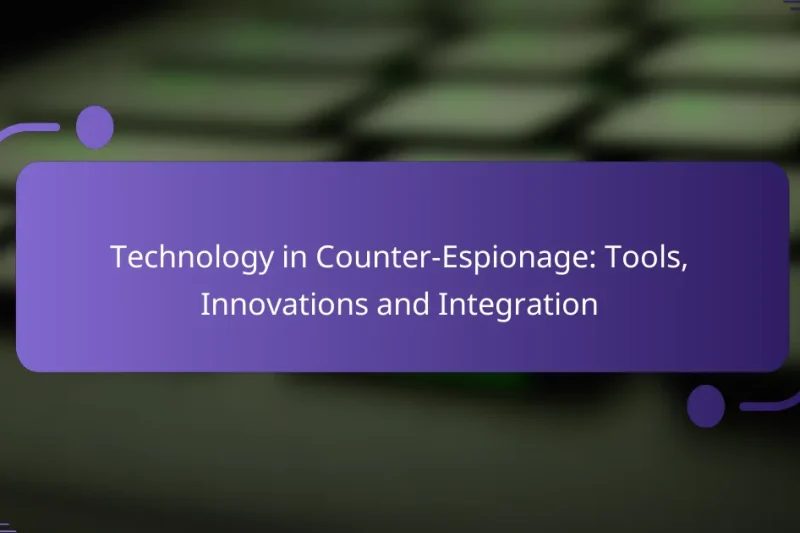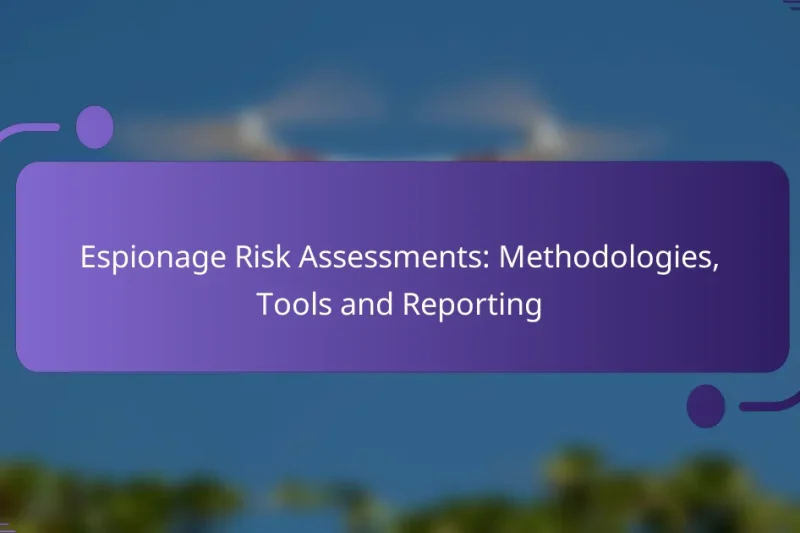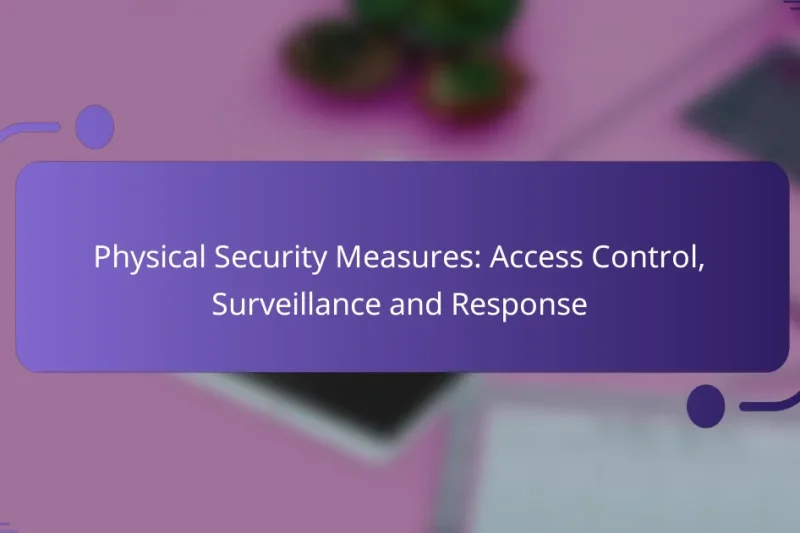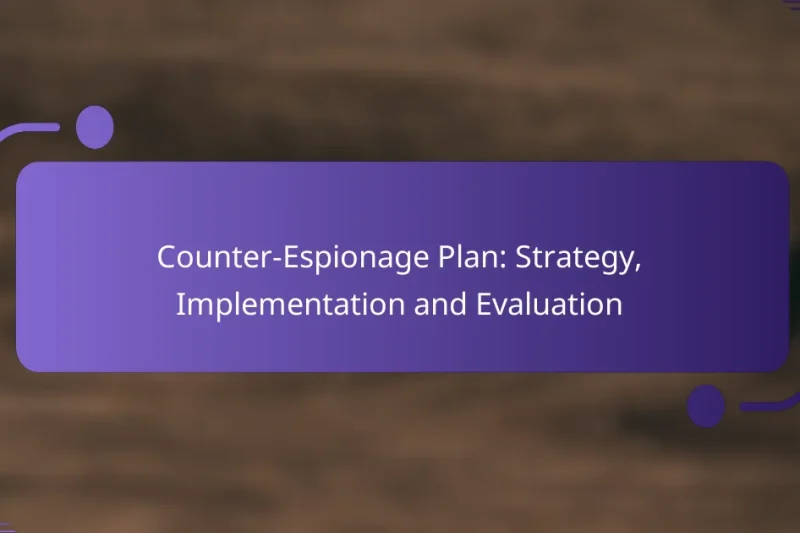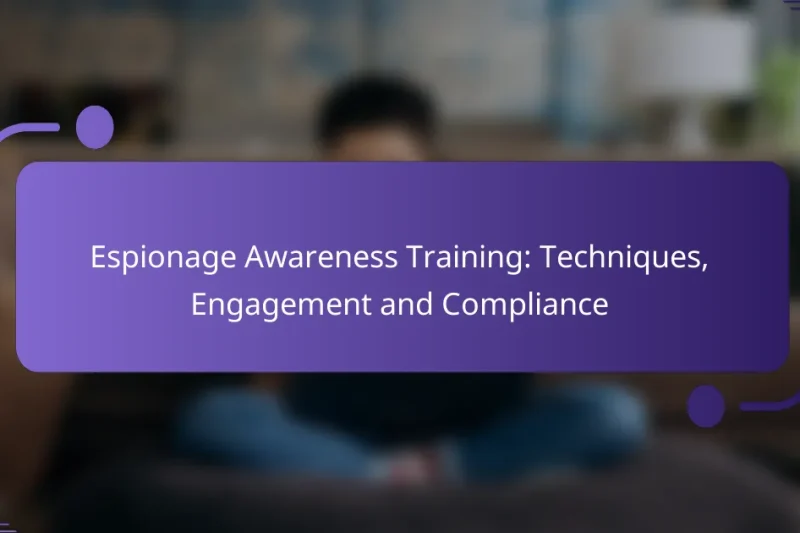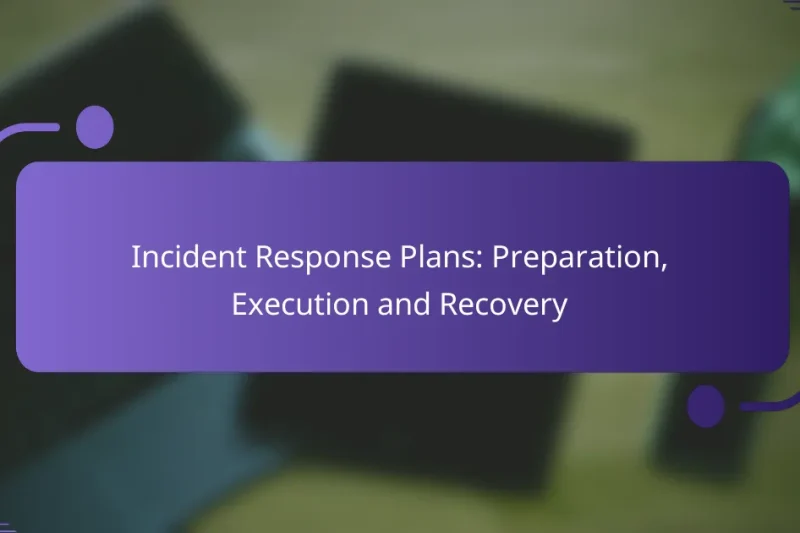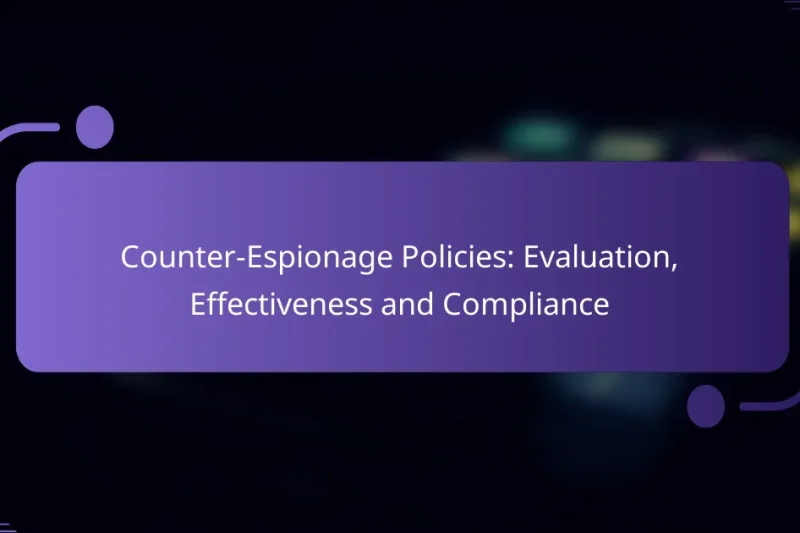In the realm of counter-espionage, technology serves as a vital ally, equipping organizations with advanced tools … Technology in Counter-Espionage: Tools, Innovations and IntegrationRead more
Counter-Espionage Strategies: Protect Your Interests
Counter-espionage strategies are essential for businesses aiming to safeguard their sensitive information and maintain a competitive edge. By identifying potential threats and enhancing security measures, organizations can create a culture of awareness among employees and significantly reduce their vulnerability to espionage activities. Leveraging advanced technology and understanding legal considerations further strengthens these efforts, ensuring that companies protect their interests effectively.
Espionage Risk Assessments: Methodologies, Tools and Reporting
Espionage risk assessments are crucial for organizations aiming to safeguard sensitive information from potential threats. Utilizing … Espionage Risk Assessments: Methodologies, Tools and ReportingRead more
Physical Security Measures: Access Control, Surveillance and Response
Physical security measures encompass a range of strategies, including access control, surveillance, and response protocols, aimed … Physical Security Measures: Access Control, Surveillance and ResponseRead more
Counter-Espionage Plan: Strategy, Implementation and Evaluation
Counter-espionage is a critical component of organizational security, focusing on proactive measures to identify and mitigate … Counter-Espionage Plan: Strategy, Implementation and EvaluationRead more
Espionage Awareness Training: Techniques, Engagement and Compliance
Espionage awareness training is crucial for equipping individuals with the skills to recognize and respond to … Espionage Awareness Training: Techniques, Engagement and ComplianceRead more
Incident Response Plans: Preparation, Execution and Recovery
An incident response plan (IRP) is essential for organizations to effectively prepare for, detect, respond to, … Incident Response Plans: Preparation, Execution and RecoveryRead more
Counter-Espionage Policies: Evaluation, Effectiveness and Compliance
Counter-espionage policies are crucial for safeguarding sensitive information and mitigating threats in an increasingly complex security … Counter-Espionage Policies: Evaluation, Effectiveness and ComplianceRead more
What are effective counter-espionage strategies for businesses?
Effective counter-espionage strategies for businesses focus on identifying potential threats, enhancing security measures, and fostering a culture of awareness among employees. By implementing a combination of risk assessments, training, and advanced technologies, companies can significantly reduce their vulnerability to espionage activities.
Risk assessment and vulnerability analysis
Conducting a thorough risk assessment and vulnerability analysis is essential for identifying potential weaknesses in a business’s security framework. This process involves evaluating physical and digital assets, assessing the likelihood of espionage attempts, and determining the potential impact of such incidents.
Businesses should regularly update their assessments to account for changes in technology and operational practices. Utilizing frameworks like ISO 27001 can guide organizations in establishing a comprehensive risk management strategy.
Employee training programs
Implementing employee training programs is crucial for raising awareness about espionage threats and best practices for safeguarding sensitive information. Training should cover topics such as recognizing suspicious behavior, secure handling of data, and the importance of reporting potential security breaches.
Regular refresher courses and simulations can help reinforce these concepts, ensuring that employees remain vigilant and informed. Consider incorporating role-playing scenarios to enhance engagement and retention of information.
Advanced surveillance systems
Investing in advanced surveillance systems can significantly bolster a business’s counter-espionage efforts. These systems may include video surveillance, access control mechanisms, and intrusion detection systems that monitor for unauthorized access to sensitive areas.
When selecting surveillance technology, consider factors such as scalability, integration with existing systems, and compliance with local regulations. Regular maintenance and updates are necessary to ensure these systems remain effective against evolving threats.
Incident response planning
Developing a robust incident response plan is vital for minimizing the impact of espionage attempts. This plan should outline clear procedures for detecting, reporting, and responding to security breaches, ensuring that all employees know their roles in the event of an incident.
Regularly testing and updating the incident response plan can help organizations adapt to new threats and improve their overall security posture. Consider conducting tabletop exercises to evaluate the effectiveness of the plan and identify areas for improvement.
Collaboration with law enforcement
Establishing a collaborative relationship with local law enforcement can enhance a business’s counter-espionage capabilities. Law enforcement agencies can provide valuable insights into emerging threats and assist in investigations of suspected espionage activities.
Businesses should consider joining industry-specific security forums or associations that facilitate communication with law enforcement. This collaboration can lead to better preparedness and a quicker response to potential threats.
How can technology enhance counter-espionage efforts?
Technology plays a crucial role in enhancing counter-espionage efforts by providing tools that protect sensitive information and detect potential threats. By leveraging advanced software and secure communication methods, organizations can significantly reduce their vulnerability to espionage activities.
Use of cybersecurity software
Cybersecurity software is essential for identifying and mitigating threats to sensitive data. These tools can include firewalls, intrusion detection systems, and antivirus programs that work together to create a robust defense against unauthorized access.
Regular updates and patches are crucial for maintaining the effectiveness of cybersecurity software. Organizations should conduct routine audits to ensure that their systems are protected against the latest threats and vulnerabilities.
Implementation of encryption tools
Encryption tools are vital for safeguarding data both in transit and at rest. By converting sensitive information into unreadable formats, encryption ensures that even if data is intercepted, it remains secure from unauthorized access.
Organizations should consider using industry-standard encryption protocols, such as AES (Advanced Encryption Standard), to protect their communications and stored data. Regularly reviewing and updating encryption methods can help maintain a strong security posture.
Adoption of secure communication platforms
Secure communication platforms are designed to protect conversations and data exchanges from eavesdropping. These platforms often utilize end-to-end encryption, ensuring that only intended recipients can access the information shared.
When selecting a secure communication platform, organizations should evaluate features such as user authentication, data encryption standards, and compliance with relevant regulations. Popular options include Signal and WhatsApp for messaging, which offer strong security measures for everyday communications.
What are the legal considerations in counter-espionage?
Legal considerations in counter-espionage involve understanding the boundaries of privacy laws and compliance with data protection regulations. Organizations must navigate these laws carefully to protect their interests while avoiding legal repercussions.
Understanding privacy laws
Privacy laws vary significantly by country and can impact counter-espionage efforts. For instance, in the European Union, the General Data Protection Regulation (GDPR) emphasizes the protection of personal data, which must be respected even during security measures.
Organizations should familiarize themselves with local privacy laws to ensure that their counter-espionage practices do not infringe on individual rights. This includes understanding what constitutes lawful surveillance and the need for consent in certain situations.
Compliance with data protection regulations
Compliance with data protection regulations is crucial for any counter-espionage strategy. Regulations like the GDPR in Europe or the California Consumer Privacy Act (CCPA) in the United States impose strict requirements on how personal data is collected, stored, and processed.
To ensure compliance, organizations should conduct regular audits of their data handling practices and implement robust data security measures. This may include encryption, access controls, and employee training on data protection principles to mitigate risks associated with espionage activities.
How to choose a counter-espionage consultant?
Selecting a counter-espionage consultant involves assessing their qualifications, experience, and reputation in the field. It’s crucial to find someone who understands your specific needs and can offer tailored strategies to protect your interests.
Evaluating expertise and experience
When evaluating a counter-espionage consultant, consider their background in security and intelligence. Look for professionals with a history of working in relevant sectors, such as government, military, or corporate security.
Check if they have certifications or training in counter-espionage techniques and risk management. A consultant with practical experience in handling espionage cases will be better equipped to address your unique challenges.
Checking client testimonials and case studies
Client testimonials and case studies provide insight into a consultant’s effectiveness and approach. Seek reviews from previous clients to gauge satisfaction and success rates in similar situations.
Request case studies that demonstrate their problem-solving capabilities and the outcomes achieved. This information can help you assess whether their methods align with your expectations and needs.
What are the costs associated with counter-espionage measures?
The costs associated with counter-espionage measures can vary significantly based on the scale and complexity of the strategies employed. Key expenses typically include technology investments, employee training programs, and consulting fees for experts.
Budgeting for technology investments
Investing in technology for counter-espionage is crucial for protecting sensitive information. Costs can range from a few thousand to several hundred thousand dollars, depending on the sophistication of the tools needed, such as encryption software, surveillance systems, and intrusion detection systems.
When budgeting, consider both initial purchase costs and ongoing maintenance expenses. It’s wise to allocate funds for regular updates and potential upgrades to stay ahead of evolving threats.
Cost of employee training programs
Employee training is essential for effective counter-espionage, with costs typically ranging from hundreds to thousands of dollars per employee. Training programs should cover topics like recognizing phishing attempts, secure data handling, and reporting suspicious activities.
Investing in comprehensive training can reduce the risk of insider threats and enhance overall security awareness. Regular refresher courses are recommended to keep skills current and reinforce best practices.
Consulting fees for experts
Hiring consultants for counter-espionage can incur significant costs, often ranging from $100 to $500 per hour, depending on the consultant’s expertise and reputation. These experts can provide valuable insights into vulnerabilities and recommend tailored strategies to mitigate risks.
When engaging consultants, it’s important to clearly define the scope of work and expected outcomes to ensure that the investment yields tangible benefits. Consider seeking multiple quotes to find a balance between cost and expertise.
What are common signs of espionage in organizations?
Common signs of espionage in organizations include unusual behavior, unauthorized access to sensitive information, and unexplained changes in employee performance. Recognizing these indicators can help in identifying potential threats to your organization’s security.
Unusual employee behavior
Employees displaying unusual behavior may indicate potential espionage activities. Look for signs such as increased secrecy, reluctance to share information, or frequent unexplained absences. These behaviors can signal that an employee may be engaging in activities that compromise organizational security.
Unauthorized access to sensitive information
Monitoring access to sensitive data is crucial for detecting espionage. If you notice unauthorized attempts to access confidential files or systems, it may suggest an insider threat. Implementing strict access controls and regularly reviewing access logs can help mitigate this risk.
Changes in employee performance
Sudden changes in an employee’s performance can be a red flag. If a previously high-performing employee starts to underperform or exhibits erratic behavior, it may warrant further investigation. Consider conducting regular performance reviews and maintaining open communication to identify any underlying issues early.
